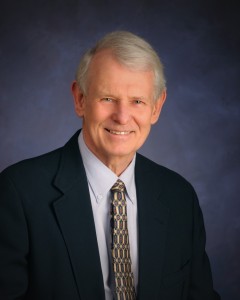By John McClaughry
Next Tuesday Vermonters will go to the polls to choose 30 senators and 150 representatives, and of course six statewide officeholders (omitting the two congressional races.) I have long been a firm believer that effective democracy requires an informed electorate advising candidates as to what’s important to them and what should be done or not done about it.

John McClaughry is vice president of the Ethan Allen Institute.
I am, frankly, disappointed by the seeming unwillingness of today’s candidates, of the two major parties, to engage with their voters on the really important issues facing our state. Far more typical are campaigns built around personal qualities and expressions of their deep concern for the people. It’s not to the electorate’s credit that they will settle for carefully scripted evasions and Sugar Plum Fairy promises in place of demanding an account of the incumbent’s performance and how all the candidates intend to vote on coming issues of importance.
One current incumbent’s ads tell the voters that he stands for “housing, child care, broadband, education, healthcare, and quality of life.” But there’s no mention of how he has voted or labored during his previous two years, and just who he expects to pay the costs of those benefits. Nor do I see voting records published in the newspapers or other media outlets.
From 1998 to 2012 the Ethan Allen Institute biennially published a booklet reporting key votes by the legislators. For the past few election years it has published online legislator profiles and voting records on issues that EAI selects as important, without ranking legislators on how they voted. This is a valuable resource, but one has to actively go to its web page to make use of it. Other organizations would make different selections. The House and Senate online Journals are the official record, but it can often be difficult for a layperson to figure out exactly what was voted on.
For each biennial election starting in 2008 I’ve written a commentary containing 15 (more or less) pointed, unbiased, relevant questions that voters and especially the news media ought to be asking of their candidates before casting their votes. Here are six from last August’s selection.
1. Should the legislature broaden the current 6% sales and use tax on goods to include services (such as haircuts, lawn maintenance, plumbing, legal advice, etc.)?
4. The Global Warming Solutions Act of 2020 authorizes “any person” to bring a lawsuit against the State if the carbon dioxide emission reduction rules fail to achieve the mandated targets. Should this “sue the State” provision be repealed?
5. Should one fifth of the members of the Vermont House or Senate be allowed to force a record vote on a resolution of disapproval of new state rules that will have large economic impacts?
7. Should the legislature adopt a “Clean Heat Standard” designed to increase the price of home and business heating fuel in order to raise money to finance weatherization, electric heat pumps, and other “green” projects favored by the Public Utility Commission?
11. Should the legislature require electric vehicles to contribute the equivalent of a motor fuel tax to the Transportation Fund, as do on-road gasoline and diesel-powered vehicles, to pay for maintenance of State roads and bridges?
14. Should the legislature allow all parents to choose the school or educational program that best fits the needs of their children from among a wide array of providers, with their portion of Education Fund dollars following the child?
Candidates are now running hard in the final week before Election Day (although as many as half of this year’s voters may have already mailed in their ballots). My plea: make it a point to ask one such pointed question to at least one candidate between now and then.
It’s an especially good practice for those who are concerned about “saving our democracy.” Remember our splendid Vermont Constitution, which declares (Chapter I, Art. 6th ) that “all officers of government, whether legislative or executive, are their [the people’s] trustees and servants, and at all times, in a legal way, accountable to them.”
John McClaughry is vice president of the Ethan Allen Institute.



Once again John, you have nailed the issues and the issue. True journalism does not exist today as news outlets have decimated their ability to do it well and visual media is more interested in “Click-bait” headlines and “USA Today” skimming the surface,1-paragraph articles.
At 77, I probably (actually, I hope) won’t be around to see our polarized country dominated by the far right (Neo-Nazi white supremists) or far left (social communists) minorities, but I really feel horrible that somehow, we have come to a place where we are leaving such a dysfunctional country to our children.
An objective, popular free press could help mitigate this trend but, because media ownership has become as polarized as our population.
I look at differences; as to whether someone is properly informed i.e. awake or not. Of course, there are differing degrees as well. At least now I can say we understand a bit better how Germany succumbed to Nazism. It was propoganda otherwise known as information warfare.
tarrant4vthouse.com